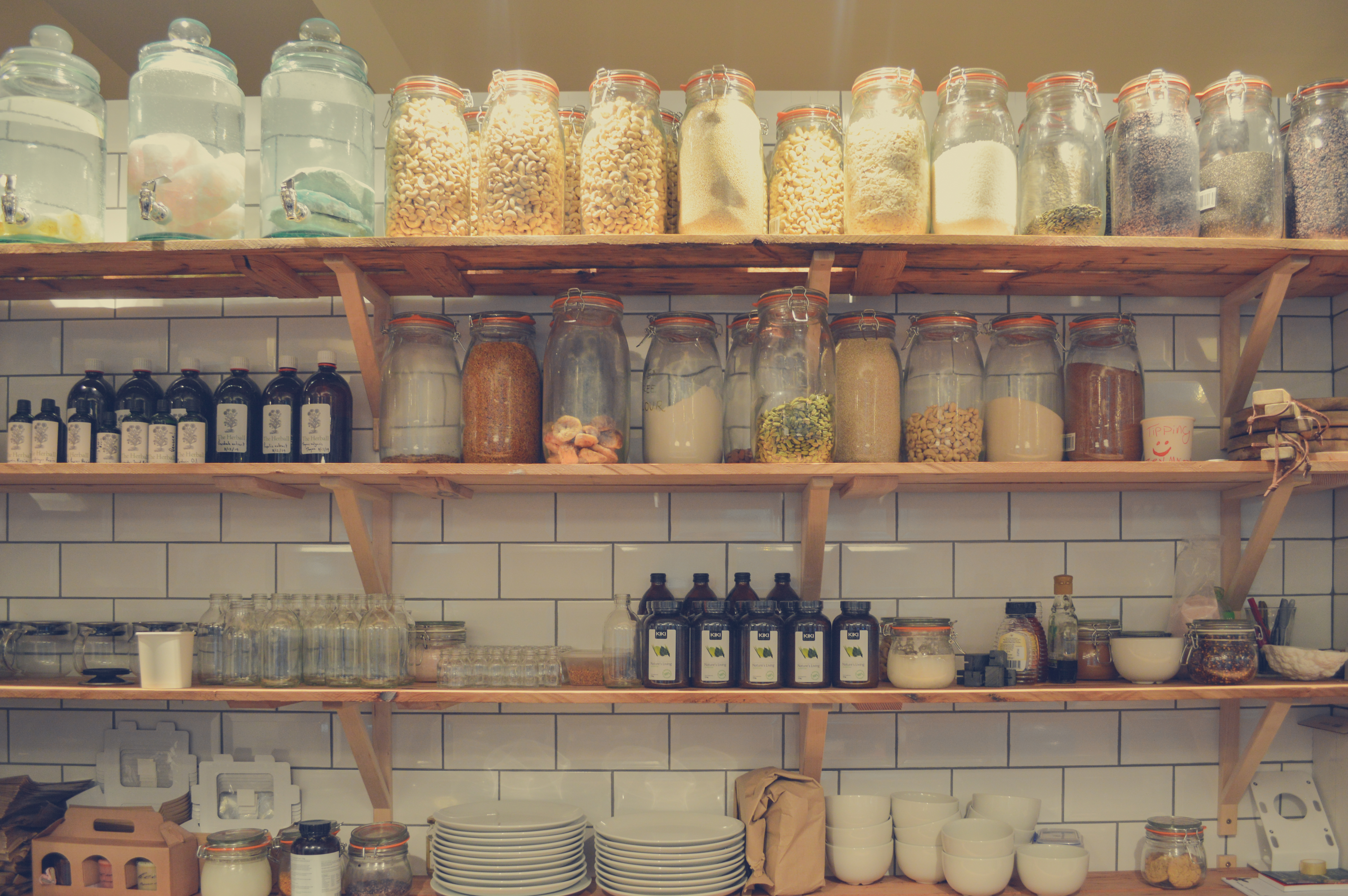With around 1.5kg of solid waste created per person each day, landfills across the world are filling up rapidly. Whether it’s plastic bottles or packaging, we’re all guilty of throwing away materials that can be recycled or re-used in some way. However, many people are now trying to buck the trend by aiming for a zero-waste lifestyle. While this may seem difficult for those living in the First World, there are lots of steps you can take, such as installing kitchen cabinets which have recycling bins inside, or choosing to buy brands that use recyclable packaging, which can start to bring you towards your goal. Here are some tips for those starting out.
Don’t try to go straight to zero
As with any lifestyle change, taking small steps means you’re more likely to reach your long-term goals. Some things you can do to start include:
 Buy a good water bottle – choose one with a filter if you hate the taste of tap water
Buy a good water bottle – choose one with a filter if you hate the taste of tap water- Invest in a reusable lunch bag so you can avoid using cling film
- Find some hard-wearing cloth bags for shopping trips
- When you do your food shop, start looking for brands that use minimal packaging, avoiding plastic whenever possible. Shopping at markets or independent stores is often better
- Buy a reusable coffee mug from your favourite chain for your daily cup
The first steps are often the hardest, so choosing a few simple products such as reusable bags can help get you on the right path.
Shop smarter
The key to creating less waste is often to buy less in the first place. Around times such as Christmas or the sales, it’s so tempting to go out and buy loads of stuff, but think twice before you hand over your card. When you see something that’s half price, for example, consider whether you would have brought it at full price. If you wouldn’t have spent that much, then it’s not a bargain.
Considering slimming your clothing collection down to a capsule wardrobe, with a few high-quality basics rather than endless racks of clothes. Not only will this save you money, it makes life easier, and mornings are calmer. If you choose high-quality clothing, it’ll last you longer, and can then be donated when you’re done with it.
When it comes to food shopping, doing smaller, regular shops can often mean less waste. When you go to supermarkets, there’s often too much temptation to stock up on things you don’t need. Make a list before you go, and ignore those two for one offers that often end up in the bin.
Give away unwanted food
Tinned and packaged food that you don’t need can be donated to a food bank or local shelter, so there’s no need to throw it away. Charities won’t always take fresh food that’s about to expire, but there are apps where you can give away unwanted food, meaning it doesn’t end up in the bin.
Re-design your kitchen

The kitchen is one of the biggest sources of waste, so it’s a good place to start when reducing waste. Make sure you have separate bins for recyclables, food waste, and non-recyclable items, and consider starting a compost bin in the garden for vegetable peelings.
Avoid buying plastic cups or cutlery, and swap the kitchen roll and disposable cloths for ones that can be washed and re-used. Another wasteful part of the kitchen is the cleaning products themselves. Using plastic bottles and spray tops, they can create a lot of waste. Consider using old fashioned alternatives such as white vinegar or bicarbonate of soda, cutting down on the number of bottles going to landfill.
Organise your bathroom
After the kitchen, the bathroom is one of the most wasteful rooms, and again it’s important to ensure it’s easy to recycle. People often forget to have a recycling bin in the bathroom, but now that many plastics can be recycled, it makes sense to have a separate bin. It’s worth looking at natural options to clean your bathroom, such as soda crystals and vinegar, as this means you can avoid using plastic bottles.
Beauty products can also create a great deal of waste. Even using a bottle of shampoo and conditioner each week can add to the mountain of waste. Look for companies who create environmentally friendly toiletries, as they’ll often use recyclable plastics. There are also options such as shampoo bars, which give you a good lather, but use minimal packaging.
Aim to banish plastic from your home
Plastic is one of the most wasteful materials. Many types aren’t recyclable, and plastic items aren’t usually built to last. Don’t throw out your plastic all at once, but aim to look for alternatives when things need to be replaced. This could include:
- Replacing plastic storage boxes with glass jars or stainless steel containers
- Choosing wooden toys for kids
- Replacing plastic pens with reusable ink pens
- Replace your blender with one that has a glass jug
- Invest in quality stainless steel or copper pans which last a lifetime
Next time you need something new around the home, no matter how big or small, just take a second to think about what it’s made of, how long it’ll last, and what will happen at the end of its lifecycle. You can then ensure that you cut down on future waste.

Minimise your deliveries
With big retailers offering next day delivery on millions of items, it’s so tempting to simply click and buy something online. However, buying lots of little items online means a huge amount of packaging waste, as many retailers will over-wrap their goods. Cut down on the amount you buy online, or order in bulk so that you get one large parcel rather than lots of little ones.
With around billions of kilos of waste produced around the planet each day, it’s important that everyone considers how they can reduce the amount of waste they use. A zero waste lifestyle is an ambitious goal, but once you start making changes you’ll see that a bit of planning and preparation can cut down on the amount you end up throwing away.
